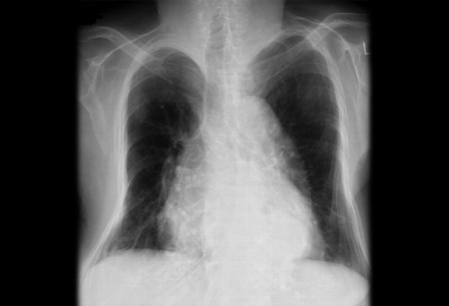Resumen
Definición
Anamnesis y examen
Principales factores de diagnóstico
- presença de fatores de risco
- assintomático
Otros factores de diagnóstico
- dorsalgia
- cifose
- perda de altura
- dor à palpação vertebral
Factores de riesgo
- fratura prévia por fragilidade
- sexo feminino
- ascendência branca
- idade avançada (>50 anos para as mulheres e >65 anos para os homens)
- baixo índice de massa corporal (IMC)
- perda de altura
- história familiar de fratura do quadril maternal
- pós-menopausa
- amenorreia secundária
- hipogonadismo primário
- tabagismo
- uso excessivo de bebidas alcoólicas
- imobilização prolongada
- baixa ingestão de cálcio
- deficiência de vitamina D
- diabetes
- artrite reumatoide
- sarcopenia
- excesso de glicocorticoides
- uso de corticosteroide
- uso de inibidor da bomba de prótons
- hipertireoidismo
- uso de heparina
- uso de anticonvulsivante
- tratamento de privação de androgênio (homens)
- tratamento com inibidor da aromatase (mulheres)
- uso de medicamentos associados ao aumento do risco de quedas
Pruebas diagnósticas
Primeras pruebas diagnósticas para solicitar
- densidade mineral óssea (DMO) por absorciometria por dupla emissão de raios X (DEXA)
Pruebas diagnósticas que deben considerarse
- Ferramenta de Avaliação do Risco de Fraturas (FRAX)
- avaliação da fratura vertebral (DEXA-AFV)
- escore ósseo trabecular
- ultrassonografia quantitativa (USQ) do calcanhar
- raio-X (punho, calcanhar, coluna e quadril)
- tomografia computadorizada (TC) quantitativa
- marcadores bioquímicos de reabsorção e formação óssea
- fosfatase alcalina sérica
- cálcio sérico
- albumina sérica
- creatinina sérica
- fosfato sérico
- níveis séricos de 25-hidroxivitamina D
- paratormônio sérico
- testes da função tireoidiana
- cortisol livre urinário
- testosterona sérica (homens)
- eletroforese de proteínas urinárias
- eletroforese de proteínas séricas
Algoritmo de tratamiento
não induzida por glicocorticoides: mulheres
não induzida por glicocorticoides: homens
induzida por glicocorticoides
Colaboradores
Autores
Khashayar Sakhaee, MD
Professor in Internal Medicine
Division Chief of Mineral Metabolism
Center for Mineral Metabolism and Clinical Research
UT Southwestern Medical Center at Dallas
Dallas
TX
Divulgaciones
KS declares that he has no competing interests.
Alireza Zomorodian, MD
Research Associate
Charles and Jane Pak Center for Mineral Metabolism and Clinical Research
UT Southwestern Medical Center
Dallas
TX
Divulgaciones
AZ declares that he has no competing interests.
Agradecimientos
Dr Khashayar Sakhaee and Dr Alireza Zomorodian would like to gratefully acknowledge Dr Alberto V Cabo-Chan Jr and Dr Lisa Leinau, the previous contributors to this topic. AVCC and LL declare that they have no competing interests.
Divulgaciones
AVCC declares that he has no competing interests. LL declares that she has no competing interests.
Revisores por pares
Kimberly Olson, MD
Internist
Veterans Administration Hospital
Minneapolis
MN
Divulgaciones
KO declares that she has no competing interests.
David Reid, MBBS
Head of Division of Applied Medicine & Professor of Rheumatology
School of Medicine & Dentistry
University of Aberdeen
Aberdeen
UK
Divulgaciones
DMR has attended meetings sponsored by or been paid speaker fees by Amgen, Merck, Novartis, Procter & Gamble, Roche, and Servier. He has been a paid advisor to Amgen, Merck, Novartis, Procter & Gamble, Roche, Servier, and Shire Pharmaceuticals. He has undertaken research studies funded by Amgen, Merck, Novartis, Procter & Gamble, and Roche.
Agradecimiento de los revisores por pares
Los temas de BMJ Best Practice se actualizan de forma continua de acuerdo con los desarrollos en la evidencia y en las guías. Los revisores por pares listados aquí han revisado el contenido al menos una vez durante la historia del tema.
Divulgaciones
Las afiliaciones y divulgaciones de los revisores por pares se refieren al momento de la revisión.
Referencias
Artículos principales
ACOG Committee on Clinical Practice Guidelines–Gynecology. Osteoporosis prevention, screening, and diagnosis: ACOG clinical practice guideline no. 1. Obstet Gynecol. 2021 Sep 1;138(3):494-506. Resumen
LeBoff MS, Greenspan SL, Insogna KL, et al. The clinician's guide to prevention and treatment of osteoporosis. Osteoporos Int. 2022 Oct;33(10):2049-102.Texto completo Resumen
ACOG Committee on Clinical Practice Guidelines–Gynecology. Management of postmenopausal osteoporosis: ACOG clinical practice guideline no. 2. Obstet Gynecol. 2022 Apr 1;139(4):698-717. Resumen
Humphrey MB, Russell L, Danila MI, et al. 2022 American College of Rheumatology guideline for the prevention and treatment of glucocorticoid-induced osteoporosis. Arthritis Rheumatol. 2023 Dec;75(12):2088-102.Texto completo Resumen
Eastell R, Rosen CJ, Black DM, et al. Pharmacological management of osteoporosis in postmenopausal women: an Endocrine Society* clinical practice guideline. J Clin Endocrinol Metab. 2019 May 1;104(5):1595-622.Texto completo Resumen
Artículos de referencia
Una lista completa de las fuentes a las que se hace referencia en este tema está disponible para los usuarios con acceso a todo BMJ Best Practice.

Diferenciales
- Mieloma múltiplo
- Osteomalácia
- Doença renal crônica - distúrbio ósseo e mineral
Más DiferencialesGuías de práctica clínica
- Screening for osteoporosis to prevent fractures
- Evidence-based guideline for the management of osteoporosis in men
Más Guías de práctica clínicaFolletos para el paciente
Dor no calcanhar (fasciite plantar)
Osteoporose: o que é?
Más Folletos para el pacienteInicie sesión o suscríbase para acceder a todo el BMJ Best Practice
El uso de este contenido está sujeto a nuestra cláusula de exención de responsabilidad